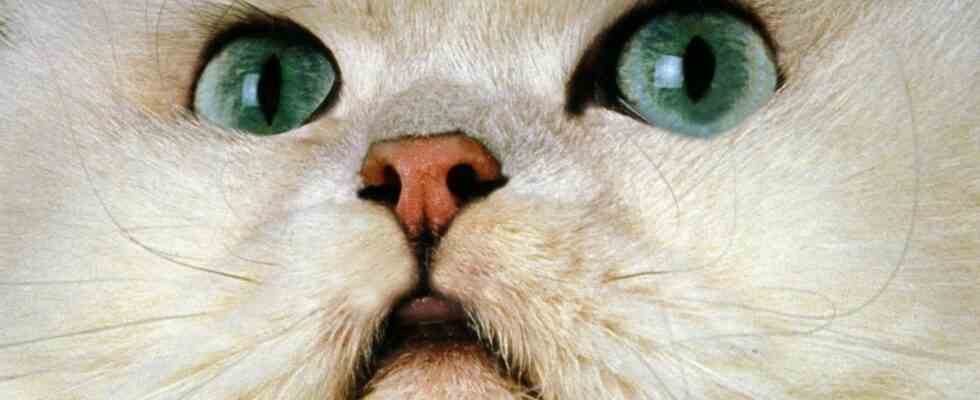“Ardistan and Djinnistan” is the high point of Karl May’s later work. Originally published from 1907 to 1909 as a serialized novel under the title “Der Mir von Dschinnistan” in the “Deutscher Hausschatz”, the two-volume book edition from 1910 is still the standard today. The audio book “Ardistan” read by Jean-Marc Birkholz and published by Bamberg’s Karl-May-Verlag is based on this (1 MP3 CD, approx. 22 hours). Volume 2 follows.
“My new story begins in Sitara, the land of the starry flowers that is almost completely unknown in Europe” are the first words in “Ardistan”. They already set the tone of the story, which ostensibly reads like the early adventure books of the Saxon fantasist – May’s alter ego Kara Ben Nemsi and his devoted companion Hajji Halef Omar experience capture, liberation and mediation between hostile peoples. But there is more to it than that. “What he designs with this text,” writes Karl May’s biographer Helmut Schmiedt, “is nothing less than a journey through world history that begins in primeval times and leads to a utopian, harmonious future.”
Kara Ben Nemsi and Haji Halef Omar land with the ship Wilahde in the oriental-looking Sitara. Wilahde means birth. Allusions like these once prompted Arno Schmidt to describe May as “the last great mystic of our literature so far”. Jean-Marc Birkholz hits the sleepwalking pitch of the allegorical story and takes us on an incomparable world exploration of epic breadth.
Mascha Kaléko’s life motto ends with the lines “The attitude to the good, to the bad/can only be determined by me”. It was found in the estate of the poet who died in 1975. Here a person speaks defiantly in his “laudable life motto” and assigns courage to accept a fate that is characterized by inner and outer homelessness. The poem opens the new selection “We have no other time than this. Poems about life”, edited by Eva-Maria Prokop, which was set to music by Katharina Thalbach for Goyalit at the same time (1 disc, 77 minutes). Thalbach interprets the 84 texts with audible joy. Reads straight and firmly, then whispers again, pausing to give each word proper space.
The Jewess Kaléko fled from Galicia to Germany with her parents in 1914 when she was seven. The Nazis put an end to her meteoric rise as a brash poet in the wild 1920s in Berlin. In 1938 she emigrated to New York with her second husband Chemjo Vinaver and their son Steven and sang about exile in the “Spring Song for Newcomers”: “Dear foreign country/homeland you, how many”. In 1959 she will follow Vinaver to Israel. When Steven died in 1968, it was to become even lonelier for Mascha Kaléko, who nevertheless is one of the best-selling poets of at least the 20th century.
This is probably also due to the fact that her poems were read as practical poetry, sometimes even understood as advice: for all their bitterness, they always have something patent. Most of the texts collected here come from the estate, some were already in the volume “In meine Traumen es Sturm läutet es Sturm” from 1977, others could only be discovered in the large work edition of 2012. Existential questions are in the foreground. The “tightrope walker without a net” quotes Heraclitus and seeks orientation in Zen Buddhism. In “Meditation” it says: “Nothing is, says the sage.”
The radio play director Kai Grehn likes to drill through literary thick boards: Hans Henny Jahnn, Emil Cioran, Pessoa. In contrast, his adaptation “The Cat Inside” is almost light-footed, although the author of the autobiographical story is none other than William S. Burroughs. The SWR production from 2020 was released on the major label in a very stylish cardboard box designed by Andreas Töpfer with a removable cat graphic (1 CD, approx. 65 minutes). Burroughs wrote the text when he was in his 70s and wanted it to be understood as an allegory in which cats act out their own lives – from stray cats to barn cats to house cats. There is also a lot of pain in a sentence like “I am the cat that walks on its own”. Musically supported by the mysteriously delayed sounds of the band Tarwater, David Bennent lends his voice to Burroughs: elastic, sensitive, surprisingly rarely hissingly scratchy. Then right. In contrast to the animals, man is the true “bad animal”. He should therefore take good care of his inner cat.

